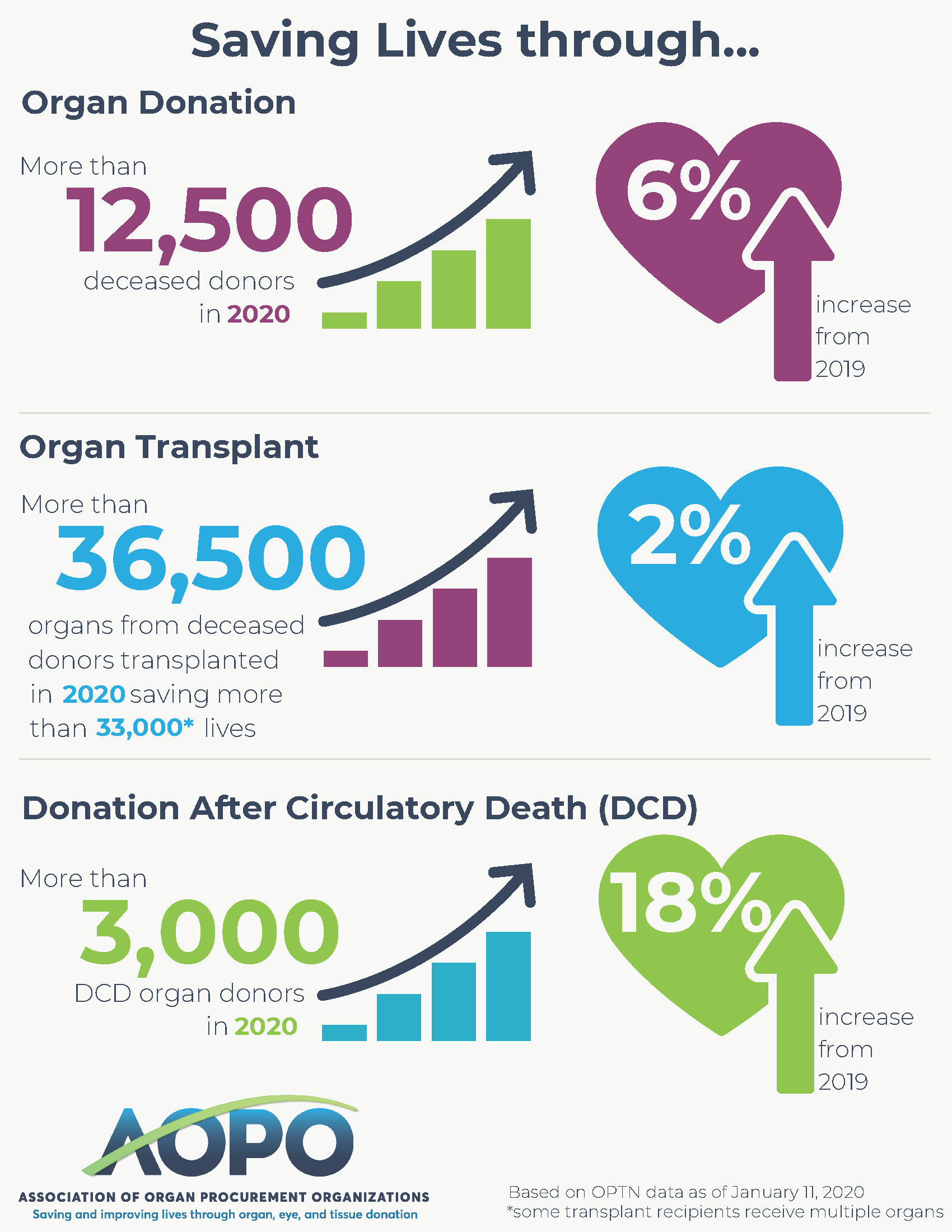CONTACT: Jenny Miller
EMAIL: jmiller@aopo.org
New Data Shows 2020 is Record Year for Organ Donation and Transplant
MCLEAN, VA., January 15, 2021 – The Association of Organ Procurement Organizations (AOPO) applauded the data released this week by the Organ Procurement Transplant Network (OPTN), showing another record-breaking year of saving lives through organ donation and transplantation. The organization, under the U.S. Department of Health and Health Services (HHS), maintains the national registry for organ matching.
The OPO community saw an upward trend for the 10th consecutive year in the number of organ donations from deceased donors. More than 12,500 people donated one or more organs representing a 6 percent increase from 2019. The number of organs transplanted from deceased donors improved to more than 36,500 in 2020, an approximately 2 percent year-over-year growth rate. These recovered organs saved more than 33,000* lives, surpassing the previous year’s numbers for the eighth year in a row. There were also significant increases in the number of Donation after Circulatory Death (DCD) donations, totaling more than 3,000 donors, an 18 percent year-over-year increase.
“Increasing organ donation and transplantation is a notable achievement any year, but truly remarkable during the unprecedented health crisis facing our nation,” says Steve Miller, CEO at AOPO. “Despite the challenges of 2020, OPOs have continued their life-saving work to ensure every donation opportunity results in lives saved. The resiliency of the donation community is strong. We will continue to set the bar higher in the year ahead to ensure the U.S. organ donation system remains the best in the world.”
View the AOPO data highlights at:
https://aopo.org/wp-content/uploads/2021/01/FINAL-Updated-2020_-Saving-Lives-through-Infographic.pdf
View the full data summary from OPTN at:
https://optn.transplant.hrsa.gov/news/annual-record-trend-continues-for-deceased-organ-donation-deceased-donor-transplants/
*Some transplant recipients receive multiple organs, explaining why the number of lives saved is lower than the number of organs transplanted.
###
The Association of Organ Procurement Organizations (AOPO) is the non-profit organization recognized as the national representative of the 57 federally designated Organ Procurement Organizations (OPOs) responsible for facilitating the organ, eye, and tissue donation process. Learn more at www.aopo.org


